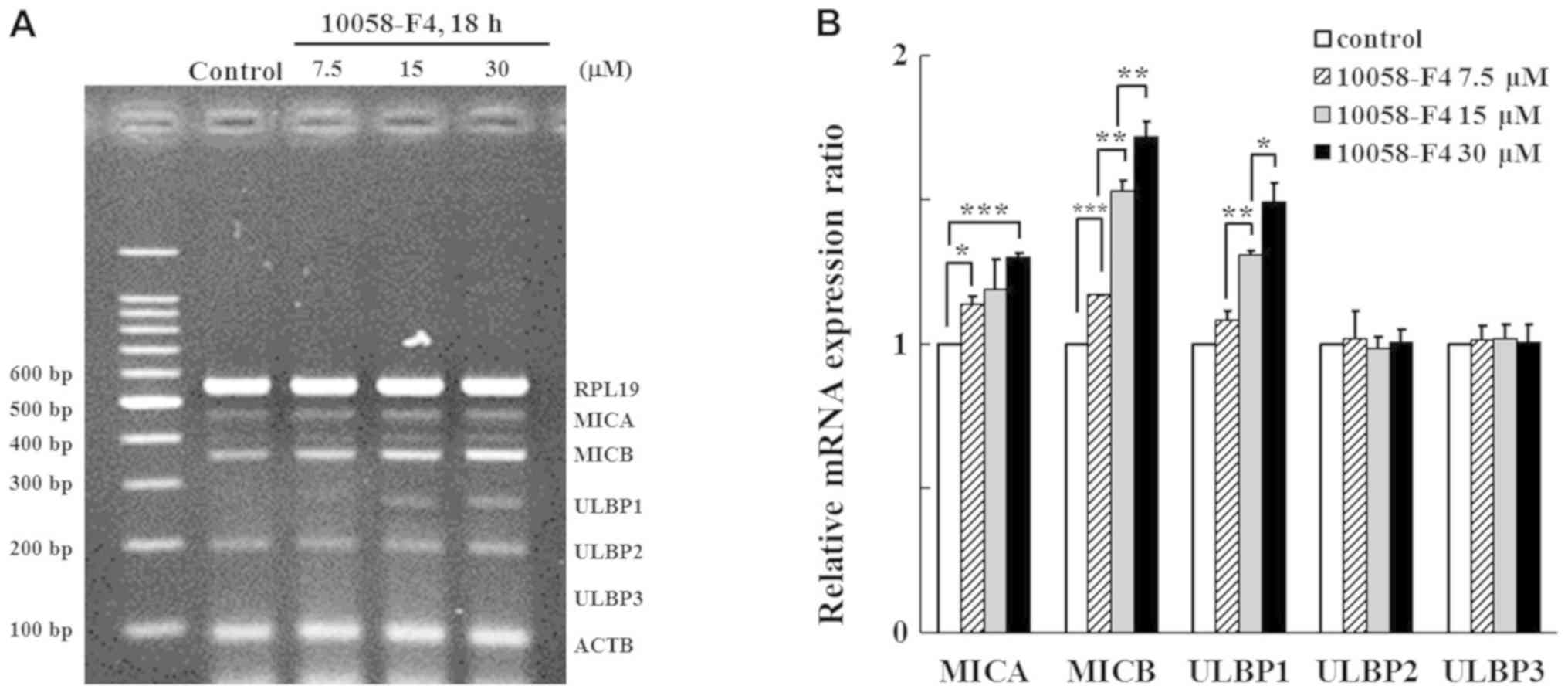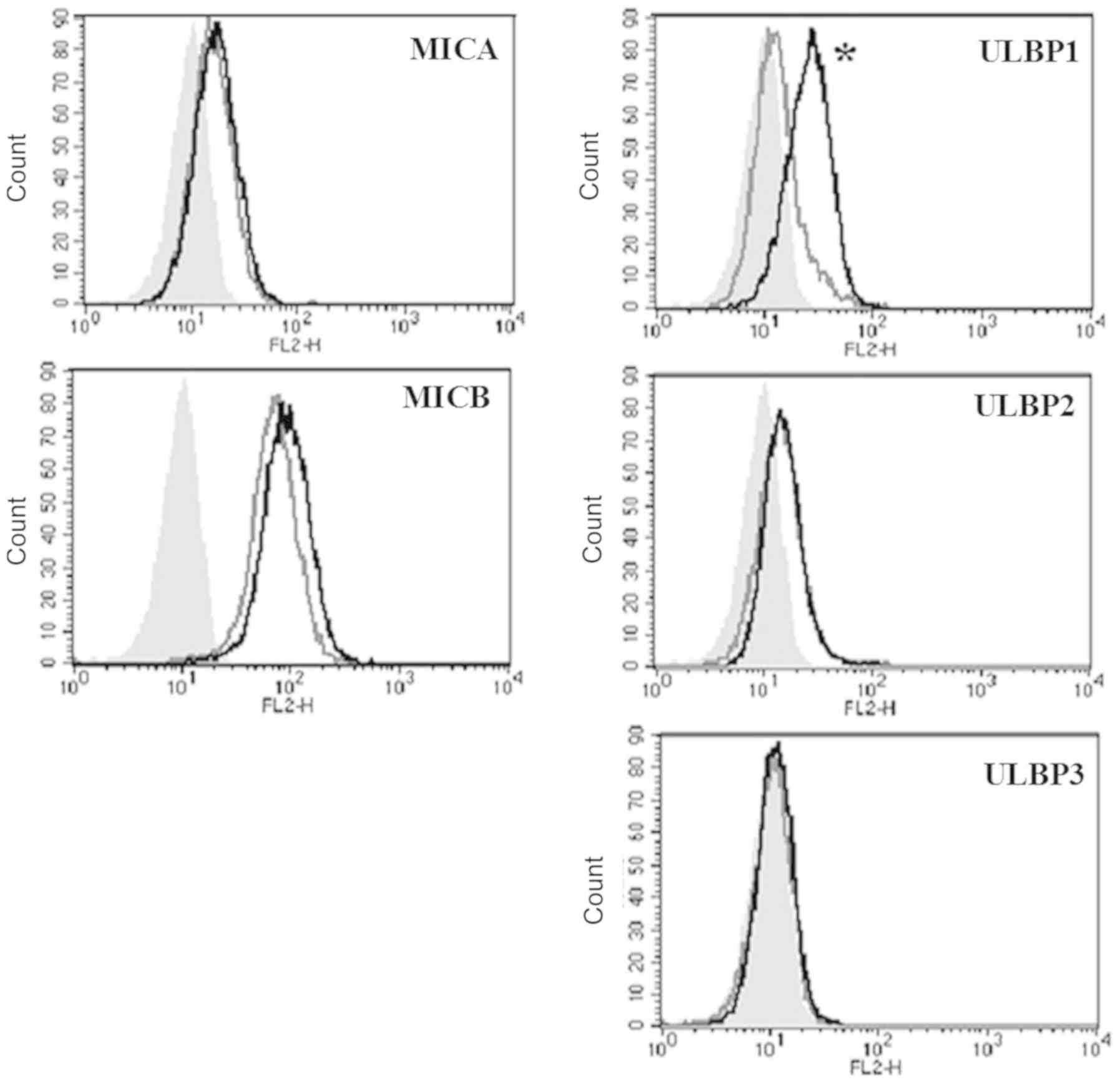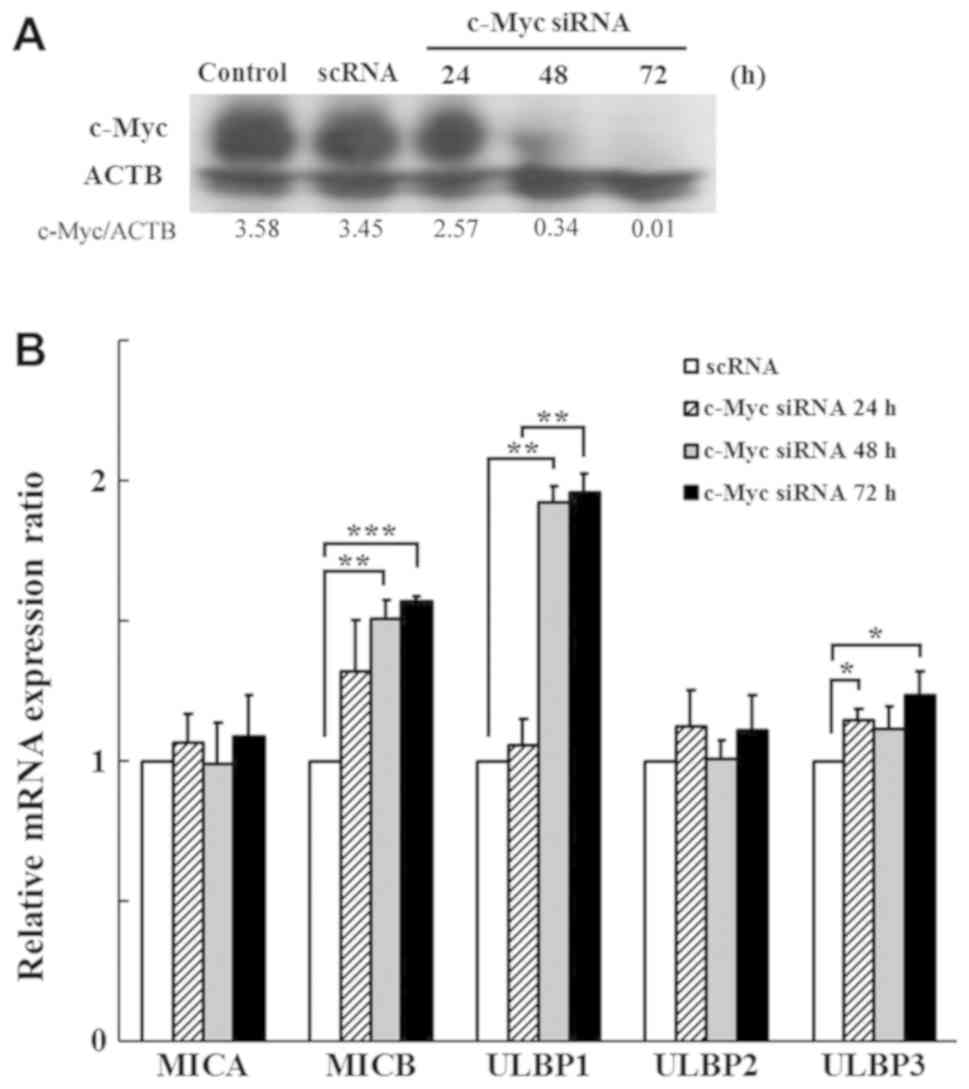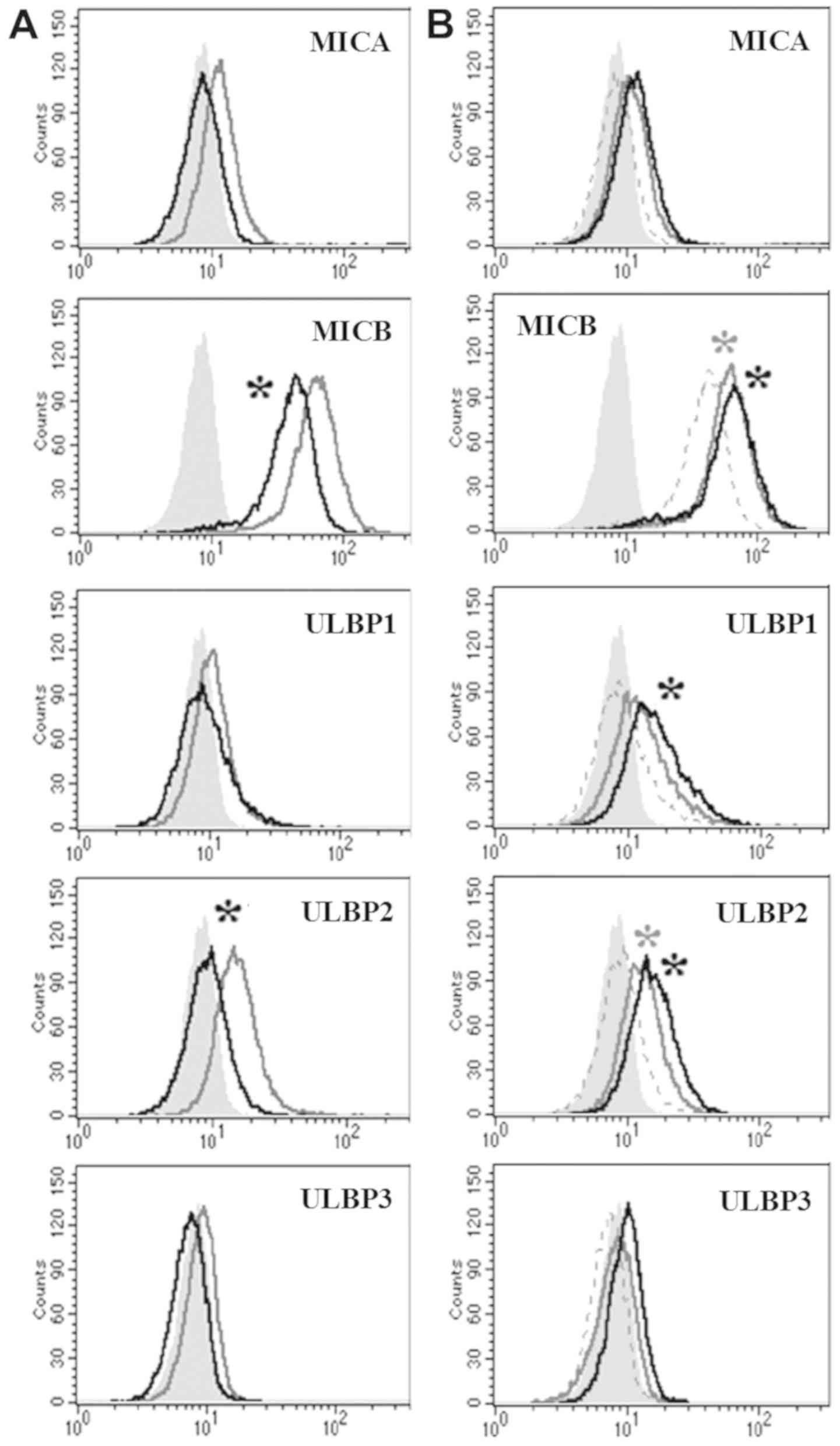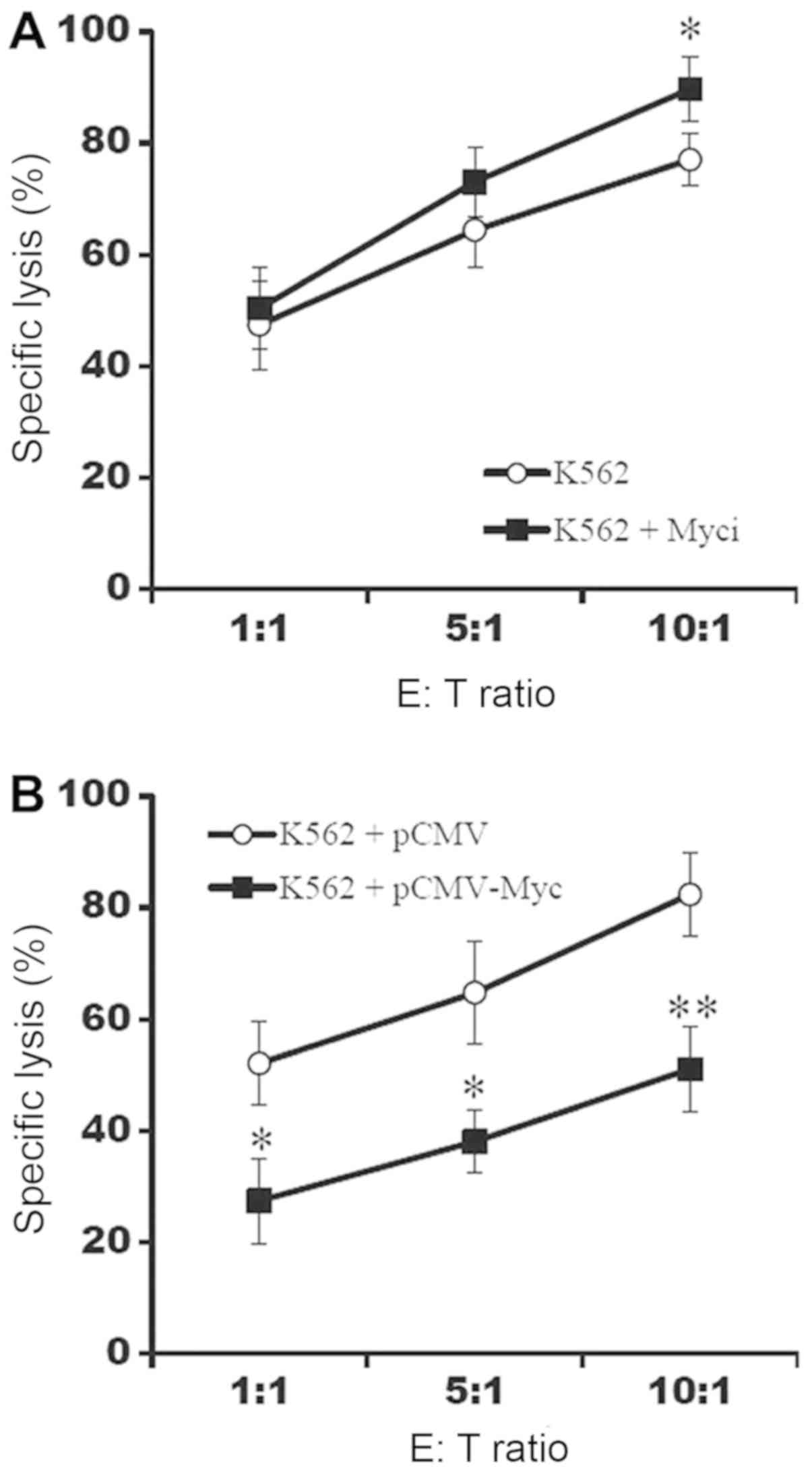|
1
|
Shortt J and Johnstone RW: Oncogenes in
cell survival and cell death. Cold Spring Harb Perspect Biol.
4(pii): a0098292012.PubMed/NCBI
|
|
2
|
Dang CV: MYC on the path to cancer. Cell.
149:22–35. 2012. View Article : Google Scholar : PubMed/NCBI
|
|
3
|
Vennstrom B, Sheiness D, Zabielski J and
Bishop JM: Isolation and characterization of c-myc, a cellular
homolog of the oncogene (v-myc) of avian myelocytomatosis virus
strain 29. J Virol. 42:773–779. 1982.PubMed/NCBI
|
|
4
|
Zech L, Haglund U, Nilsson K and Klein G:
Characteristic chromosomal abnormalities in biopsies and
lymphoid-cell lines from patients with Burkitt and non-Burkitt
lymphomas. Int J Cancer. 17:47–56. 1976. View Article : Google Scholar : PubMed/NCBI
|
|
5
|
Dang CV: c-Myc target genes involved in
cell growth, apoptosis, and metabolism. Mol Cell Biol. 19:1–11.
1999. View Article : Google Scholar : PubMed/NCBI
|
|
6
|
Grandori C and Eisenman RN: Myc target
genes. Trends Biochem Sci. 22:177–181. 1997. View Article : Google Scholar : PubMed/NCBI
|
|
7
|
Bauer S, Groh V, Wu J, Steinle A, Phillips
JH, Lanier LL and Spies T: Activation of NK cells and T cells by
NKG2D, a receptor for stress-inducible MICA. Science. 285:727–729.
1999. View Article : Google Scholar : PubMed/NCBI
|
|
8
|
Diefenbach A, Jamieson AM, Liu SD, Shastri
N and Raulet DH: Ligands for the murine NKG2D receptor: Expression
by tumor cells and activation of NK cells and macrophages. Nat
Immunol. 1:119–216. 2000. View
Article : Google Scholar : PubMed/NCBI
|
|
9
|
Groh V, Bahram S, Bauer S, Herman A,
Beauchamp M and Spies T: Cell stress-regulated human major
histocompatibility complex class I gene expressed in
gastrointestinal epithelium. Proc Natl Acad Sci USA.
93:12445–12450. 1996. View Article : Google Scholar : PubMed/NCBI
|
|
10
|
Bakker AB, Phillips JH, Figdor CG and
Lanier LL: Killer cell inhibitory receptors for MHC class I
molecules regulate lysis of melanoma cells mediated by NK cells,
gamma delta T cells, and antigen-specific CTL. J Immunol.
160:5239–5245. 1998.PubMed/NCBI
|
|
11
|
Chang CC and Ferrone S: NK cell activating
ligands on human malignant cells: Molecular and functional defects
and potential clinical relevance. Semin Cancer Biol. 16:383–392.
2006. View Article : Google Scholar : PubMed/NCBI
|
|
12
|
Hilpert J, Grosse-Hovest L, Grunebach F,
Buechele C, Nuebling T, Raum T, Steinle A and Salih HR:
Comprehensive analysis of NKG2D ligand expression and release in
leukemia: Implications for NKG2D-mediated NK cell responses. J
Immunol. 189:1360–1371. 2012. View Article : Google Scholar : PubMed/NCBI
|
|
13
|
Bae JH, Kim JY, Kim MJ, Chang SH, Park YS,
Son CH, Park SJ, Chung JS, Lee EY, Kim SH and Kang CD: Quercetin
enhances susceptibility to NK cell-mediated lysis of tumor cells
through induction of NKG2D ligands and suppression of HSP70. J
Immunother. 33:391–401. 2010. View Article : Google Scholar : PubMed/NCBI
|
|
14
|
Boissel N, Rea D, Tieng V, Dulphy N, Brun
M, Cayuela JM, Rousselot P, Tamouza R, Le Bouteiller P, Mahon FX,
et al: BCR/ABL oncogene directly controls MHC class I chain-related
molecule A expression in chronic myelogenous leukemia. J Immunol.
176:5108–5116. 2006. View Article : Google Scholar : PubMed/NCBI
|
|
15
|
Heo W, Lee YS and Bae JH: Inhibition of
oncogenes affects the expression of NKG2D ligands in cancer cells.
J Life Sci. 23:1216–1222. 2013. View Article : Google Scholar
|
|
16
|
Peinado C, Kang X, Hardamon C, Arora S,
Mah S, Zhang H, Ngolab J and Bui JD: The nuclear factor-κB pathway
down-regulates expression of the NKG2D ligand H60a in vitro:
Implications for use of nuclear factor-κB inhibitors in cancer
therapy. Immunology. 139:265–274. 2013. View Article : Google Scholar : PubMed/NCBI
|
|
17
|
Park SW, Bae JH, Kim SD, Son YO, Kim JY,
Park HJ, Lee CH, Park DY, Kim JY, Lee MK, et al: Comparison of
level of NKG2D ligands between normal and tumor tissue using
multiplex RT-PCR. Cancer Invest. 25:299–307. 2007. View Article : Google Scholar : PubMed/NCBI
|
|
18
|
Huang MJ, Cheng YC, Liu CR, Lin S and Liu
HE: A small-molecule c-Myc inhibitor, 10058-F4, induces cell-cycle
arrest, apoptosis, and myeloid differentiation of human acute
myeloid leukemia. Exp Hematol. 34:1480–1489. 2006. View Article : Google Scholar : PubMed/NCBI
|
|
19
|
Albajar M, Gómez-Casares MT, Llorca J,
Mauleon I, Vaqué JP, Acosta JC, Bermudez A, Donato N, Delgado MD
and León J: MYC in chronic myeloid leukemia: Induction of aberrant
DNA synthesis and association with poor response to imatinib. Mol
Cancer Res. 9:564–576. 2011. View Article : Google Scholar : PubMed/NCBI
|
|
20
|
Coulis CM, Lee C, Nardone V and Prokipcak
RD: Inhibition of c-myc expression in cells by targeting an
RNA-protein interaction using antisense oligonucleotides. Mol
Pharmacol. 57:485–494. 2000. View Article : Google Scholar : PubMed/NCBI
|
|
21
|
Lozzio CB and Lozzio BB: Human chronic
myelogenous leukemia cell-line with positive Philadelphia
chromosome. Blood. 45:321–334. 1975.PubMed/NCBI
|
|
22
|
Law JC, Ritke MK, Yalowich JC, Leder GH
and Ferrell RE: Mutational inactivation of the p53 gene in the
human erythroid leukemic K562 cell line. Leuk Res. 17:1045–1050.
1993. View Article : Google Scholar : PubMed/NCBI
|
|
23
|
Zindy F, Eischen CM, Randle DH, Kamijo T,
Cleveland JL, Sherr CJ and Roussel MF: Myc signaling via the ARF
tumor suppressor regulates p53-dependent apoptosis and
immortalization. Genes Dev. 12:2424–2433. 1998. View Article : Google Scholar : PubMed/NCBI
|
|
24
|
Campoli M and Ferrone S: Tumor escape
mechanisms: Potential role of soluble HLA antigens and NK cells
activating ligands. Tissue Antigens. 72:321–334. 2008. View Article : Google Scholar : PubMed/NCBI
|
|
25
|
Dunn GP, Bruce AT, Ikeda H, Old LJ and
Schreiber RD: Cancer immunoediting: From immunosurveillance to
tumor escape. Nat Immunol. 3:991–998. 2002. View Article : Google Scholar : PubMed/NCBI
|
|
26
|
Eisele G, Wischhusen J, Mittelbronn M,
Meyermann R, Waldhauer I, Steinle A, Weller M and Friese MA:
TGF-beta and metalloproteinases differentially suppress NKG2D
ligand surface expression on malignant glioma cells. Brain.
129:2416–2425. 2006. View Article : Google Scholar : PubMed/NCBI
|
|
27
|
Groh V, Wu J, Yee C and Spies T:
Tumour-derived soluble MIC ligands impair expression of NKG2D and
T-cell activation. Nature. 419:734–738. 2002. View Article : Google Scholar : PubMed/NCBI
|
|
28
|
Xu L, Chen X, Shen M, Yang DR, Fang L,
Weng G, Tsai Y, Keng PC, Chen Y and Lee SO: Inhibition of
IL-6-JAK/Stat3 signaling in castration-resistant prostate cancer
cells enhances the NK cell-mediated cytotoxicity via alteration of
PD-L1/NKG2D ligand levels. Mol Oncol. 12:269–286. 2018. View Article : Google Scholar : PubMed/NCBI
|
|
29
|
Gasser S, Orsulic S, Brown EJ and Raulet
DH: The DNA damage pathway regulates innate immune system ligands
of the NKG2D receptor. Nature. 436:1186–1190. 2005. View Article : Google Scholar : PubMed/NCBI
|
|
30
|
Nanbakhsh A, Pochon C, Mallavialle A,
Amsellem S, Bourhis JH and Chouaib S: c-Myc regulates expression of
NKG2D ligands ULBP1/2/3 in AML and modulates their susceptibility
to NK-mediated lysis. Blood. 123:3585–3595. 2014. View Article : Google Scholar : PubMed/NCBI
|















